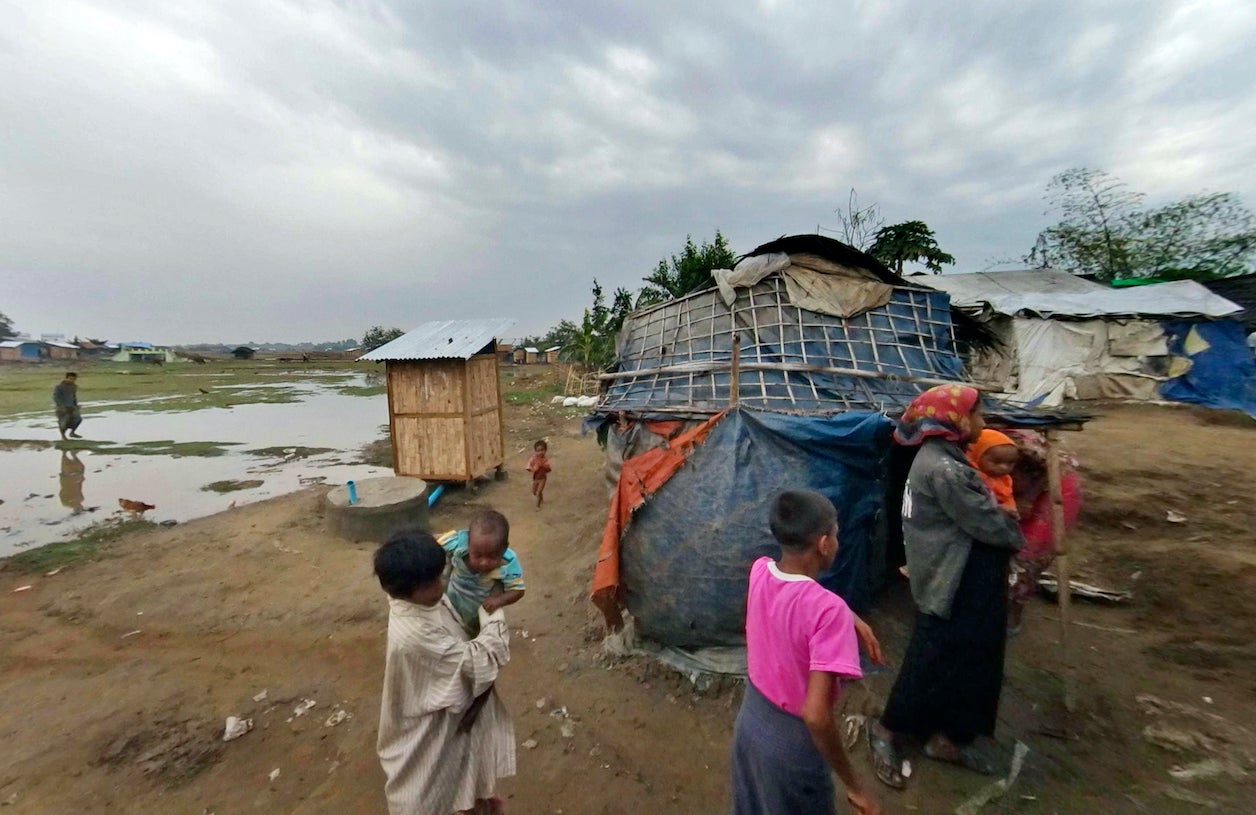Myanmar’s Directives Not Enough to Protect Rohingya
Rohingya walk at Dar Paing camp, Rakhine State, Myanmar, March 17, 2017.

The clock is ticking for Myanmar to report to the International Court of Justice (ICJ) in The Hague. This week, Myanmar’s government issued two presidential directives in response to the ICJ’s January order that the government and military prevent genocide of the Rohingya Muslim ethnic group and preserve evidence of crimes that could amount to genocide.
The court ordered Myanmar to report on its compliance by May 23 and then every six months while Gambia’s case alleging that abuses against the Rohingya violated the Genocide Convention proceeds. Directive No. 1/2020 orders “all Ministries and all Regions and States Governments” to ensure its staff and others under its control “do not commit” acts defined in the Genocide Convention. Directive No. 2/2020 prohibits “all Ministries and the Rakhine State government” from destroying or removing evidence of genocide. But preventing genocide isn’t just about stopping military atrocities against the Rohingya, including murder, rape, and torture, which peaked during a 2017 campaign of ethnic cleansing that forced more than 740,000 Rohingya to flee to neighboring Bangladesh. Many of the government’s existing policies aimed at repressing the Rohingya may be evidence of ongoing genocide in Myanmar’s Rakhine State. In analyzing the genocidal act of “[d]eliberately inflicting on the group conditions of life calculated to bring about its physical destruction in whole or in part,” the United Nations-backed Independent International Fact-Finding Mission on Myanmar pointed to the “oppressive and systemic restrictions” suffered by the Rohingya, including restrictions on freedom of movement, access to food, livelihood, health care, education, and regular blocking of humanitarian assistance. In September 2019, UN special rapporteur on human rights in Myanmar Yanghee Lee found that Myanmar had “done nothing to dismantle the system of violence and persecution” against the Rohingya.
The 600,000 Rohingya still in Rakhine State – which the Fact-Finding Mission found faced “a greater threat of genocide than ever” – remain largely cut off from health care and desperately needed humanitarian aid, trapped in villages and open-air detention centers that Human Rights Watch recently warned are Covid-19 tinderboxes. More than the recent presidential directives, Myanmar’s compliance with the ICJ order to prevent genocide requires urgent and concrete steps to roll back repressive measures that target the Rohingya.
The very survival of the Rohingya in Rakhine State may depend on it.
Read the full article at the original website
References:
- https://www.moi.gov.mm/npe/nlm/?q=download/file/fid/5956
- https://www.icj-cij.org/files/case-related/178/178-20191111-APP-01-00-EN.pdf
- https://www.hrw.org/news/2017/09/25/burma-military-commits-crimes-against-humanity
- https://www.ohchr.org/en/hrbodies/hrc/myanmarffm/pages/index.aspx
- https://www.ohchr.org/en/NewsEvents/Pages/DisplayNews.aspx?NewsID=25009&LangID=E
- https://www.hrw.org/news/2020/03/30/myanmar-displacement-camps-are-covid-19-tinderboxes
